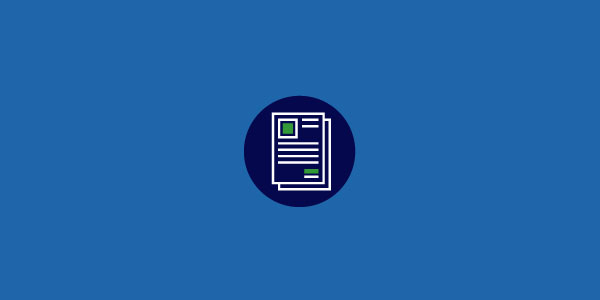What is Modern Governance?
 Governance has struggled to keep pace with today’s local government landscape. The world we live in is switched on, digital and decentralized. Cyberattacks can originate from anywhere in the world. Social media amplifies the voice of every citizen and staff member. In a world where nanoseconds count, old governance practices aren’t just out of date; they’re exposing today’s local government organizations to the kinds of risks that can lead to crises. And there’s no shortage of examples these days…
Governance has struggled to keep pace with today’s local government landscape. The world we live in is switched on, digital and decentralized. Cyberattacks can originate from anywhere in the world. Social media amplifies the voice of every citizen and staff member. In a world where nanoseconds count, old governance practices aren’t just out of date; they’re exposing today’s local government organizations to the kinds of risks that can lead to crises. And there’s no shortage of examples these days…
Cyber breaches. Poor tone at the top. Employee misbehavior gone viral. These are the things that governance shortfalls are made of. And the next question is always the same: Where was the council while all this was happening?
Simply put, good governance is a competitive advantage in today’s complex, digital world. And the first step towards modernizing governance frameworks requires clear identification of the problem.
Acknowledging the Governance Deficit
Globalization, digitization, connectivity, access—many of these change factors have been welcomed advancements, yet the rate at which they’ve come into play has left today’s organizations with little time to adapt. As a result, today’s local governments have been exposed to a dangerous governance deficit, which can take many forms:
- Leaders don’t have the right information at the right time to ask the right questions.
- The council lacks visibility into the community’s current and future needs.
- Organizational data and communication systems are disparate and unsecure, hindering collaboration and exposing municipalities to potential cyber risk.
Core to today’s governance deficits are a lack of visibility, security and speed. When local government organizations address these deficiencies, they empower effective decision-making, enhance transparency, and gain access to the kinds of insights drive growth and longevity in today’s digital age.
Defining Modern Governance
Modern governance: (n.) the practice of empowering state, province and local government leaders with technology, insights, and processes to fuel good governance to thrive in today’s fast-paced digital age.
In an effort to bridge the current governance deficits, iCompass is thrilled to be a part of the Diligent team in launching a new category: modern governance. Enabling this new category, iCompass’ offerings put the necessary tools and intelligence at the fingertips of today’s council members and leadership teams.
Modern governance equips state, province and local governments with the information they need to ask questions and address red flags. It protects a community’s most important data. It enables greater transparency and liberates the flow of information to the public. It transforms the council into an engaged partner of the community and an early warning radar system for the future. Most importantly, modern governance is a strategic advantage in a time of enhanced risk and disruption.
What does a modern governance product solution look like?
- Council and civic engagement – tools that connect council members to one another and the community, empowering them to collaborate and providing oversight of spending, staffing and budgets, as well as insight from third-parties.
- Access meets security – local governments can secure information, but also make it readily available to the right people at the right time.
- Integrated applications enable coherent policy – with a cohesive set of applications, elected officials can access the information they need to carry out sound policy.
Motivating this modern governance category launch is our genuine belief that good governance matters and impacts us all. Every staff member and citizen is affected by the way local government councils govern, good or bad. iCompass is proud to be a part of the Diligent family of brands in bringing these modern governance solutions to life and together serving more organizations across the world than any other board software provider. Given Diligent’s customer base—more than 650,000 users in 90+ countries around the world—we recognize our impact in the governance equation. Not only are we equipping today’s councils with the tools they need to thrive, but with the tools they need to do the right thing.
4 Steps Councils Can Take Towards Modern Governance
Through our interactions with public governing bodies, we’ve learned a few things: Good governance is dynamic—it can look a little different from one organization to the next. Yet, there are a few modern governance principles that hold constant.
-
Re-examine your community’s structure and priorities.
When you join a local government council, you’re inheriting a community structure (i.e., an existing set of rules, roles and processes that govern the council and the broader community). New members must get up to speed quickly on necessary processes and protocol, but they can also offer a fresh perspective on how things could be done better. Council members should not be afraid to re-examine or challenge the current processes that are in place and ask, “Can we be doing this a better way?” Keeping a close eye on the effectiveness of your current community structure and any established priorities will allow your council to more precisely pinpoint areas of improvement.
-
Focus on council composition and development.
Local governments that support the principles of modern governance align council member skills with long-term strategy; they see diversity of all kinds as an advantage, not a requirement. However, executing on these principles is where many councils fall short. Modern governance councils must work to identify gaps, understand the skills and perspectives required to answer the needs of the community, and recognize any potential conflicts of interest.
-
Improve visibility around key risks and opportunities.
It’s not enough to simply identify key risks—councils must then design the dashboards, reporting frameworks, and info-gathering networks that allow them to monitor these risks and identify red flags. A modern governance product solution ensures that local government councils remain aligned with their goals with strategic progress tracking, that they practice strong transparency, and that they stay in compliance with open meeting laws and regulations.
-
Avoid easy cyber mistakes.
Council members are notoriously guilty of using text messaging or personal email to share sensitive information and materials. For public boards, discussing board business outside of scheduled meetings not only violates open meeting laws, but puts the public’s information at risk. Local governments that practice modern governance do not make these mistakes; they centralize council and management collaboration, using role-based authorizations to view certain council materials, allowing for a level of privacy while also ensuring that the public has easy access to required information.
Over the next several weeks and beyond, we’ll be exploring the impact of good governance, sharing best practices, and celebrating the local government organizations, board and council members who are doing it well. Stay tuned!


